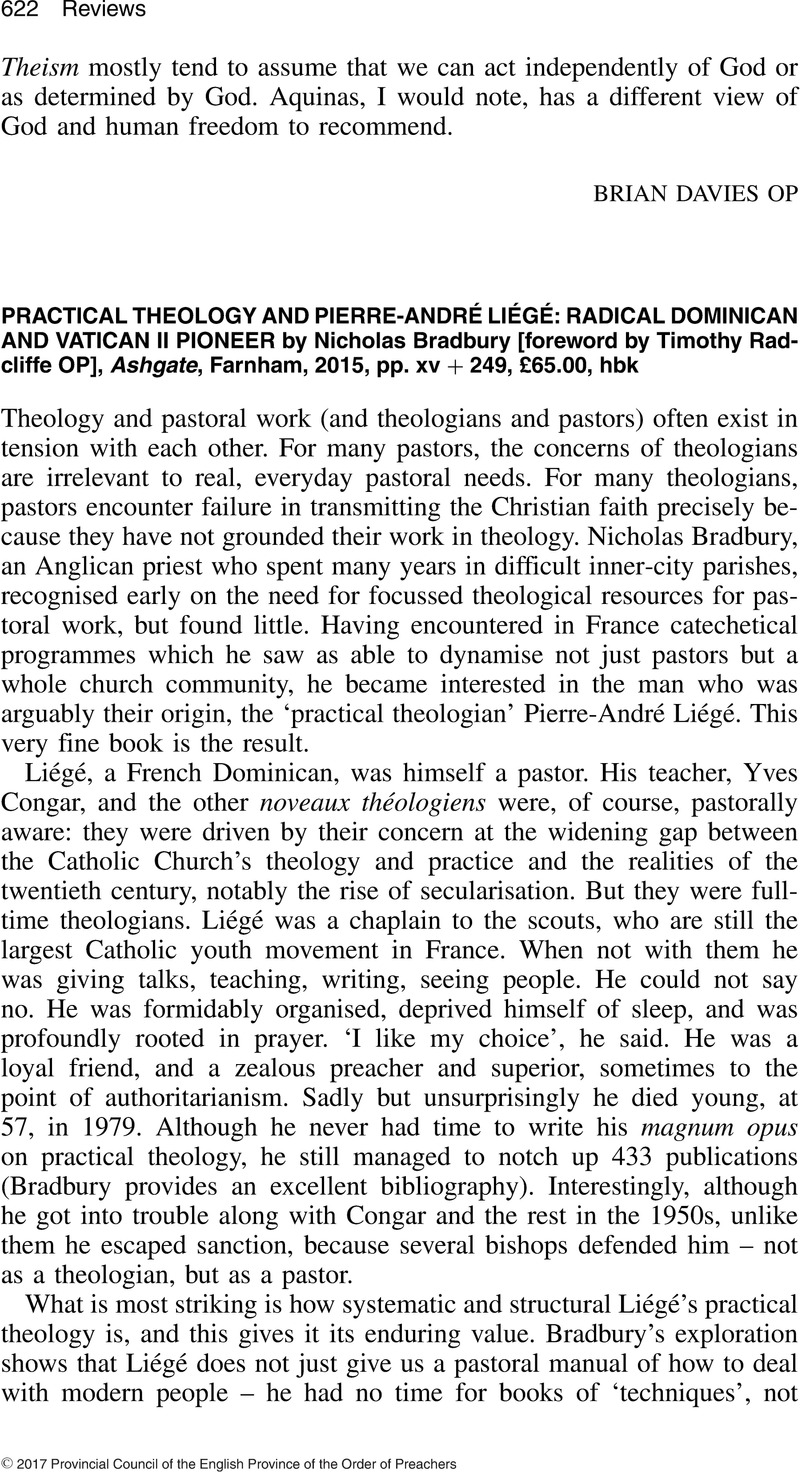No CrossRef data available.
Article contents
Practical Theology and Pierre‐André Liégé: Radical Dominican and Vatican II Pioneer by Nicholas Bradbury [foreword by Timothy RadcliffeOP], Ashgate, Farnham, 2015, pp. xv + 249, £65.00, hbk
Review products
Practical Theology and Pierre‐André Liégé: Radical Dominican and Vatican II Pioneer by Nicholas Bradbury [foreword by Timothy Radcliffe OP], Ashgate, Farnham, 2015, pp. xv + 249, £65.00, hbk
Published online by Cambridge University Press: 01 January 2024
Abstract
An abstract is not available for this content so a preview has been provided. Please use the Get access link above for information on how to access this content.

- Type
- Review
- Information
- Copyright
- Copyright © 2017 Provincial Council of the English Province of the Order of Preachers


